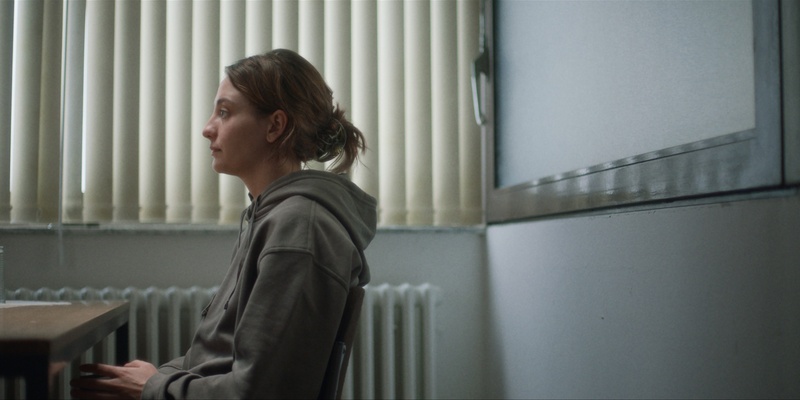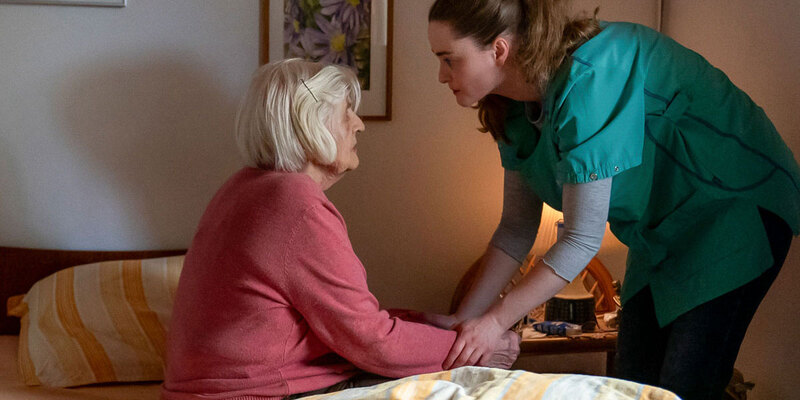
A Haunting Look at Trust and Betrayal
MOVIE REVIEW
The Good Sister (Schwesterherz)
–
Genre: Drama
Year Released: 2025
Runtime: 1h 35m
Director(s): Sarah Miro Fischer
Writer(s): Sarah Miro Fischer, Agnes Maagaard Petersen
Cast: Marie Bloching, Anton Weil, Proschat Madani, Laura Balzer, Jane Chirwa
Language: German with English subtitles
Where To Watch: shown at the 2025 Berlin International Film Festival
RAVING REVIEW: This film lingers as an experience, forcing viewers to confront questions without easy answers. How well do we truly know those closest to us? Can love and loyalty survive when trust is shattered? What happens when the person we rely on the most becomes a source of doubt rather than security? These questions aren’t just themes in the story—they are the foundation of the film’s slow-burning tension.
The central relationship explored here is that of two siblings, a bond built on years of shared experiences and unspoken trust. Marie Bloching’s Rose is used to seeing her older brother, Sam (Anton Weil,) as a steady presence in her life. When he is accused of something that makes her question everything she thought she knew, her world doesn’t just shift—it collapses in on itself. This isn’t simply a story of guilt or innocence; it examines what happens when certainty is replaced with doubt.
Visually, the film cleverly plays with this unraveling sense of security. The cinematography mirrors Rose’s shifting mindset, with once-familiar spaces growing stifling and oppressive. The camera lingers, forcing the audience to sit in discomfort, while dim lighting and claustrophobic framing make it impossible to escape the suffocating reality she faces. This story isn’t just told through dialogue—it’s felt in every shadow, every pause, every moment where silence speaks louder than words.
One of the most striking choices in the film is how it approaches Rose. She isn’t the determined, independent lead that audiences have come to expect in modern storytelling. Instead, she’s uncertain, reactive, and emotionally dependent on those around her. This makes her incredibly human, which in turn makes her struggle all the more gut-wrenching. A rawness to her performance adds to the character—she’s not just fighting for the truth; she’s fighting for her sense of self.
The real power of the narrative comes from its willingness to tackle the uncomfortable truth that harm doesn’t always come from strangers lurking in the dark. Often, it comes from within familiar spaces, from people we trust. The story refuses to let its audience look away from this reality, forcing them to grapple with the idea that danger can exist where we least expect it. It’s a thought that lingers, leaving the viewer questioning not just the characters in the film but their assumptions about trust and morality.
Rather than relying on explosive moments, the story builds tension through subtle shifts and careful pacing. The discomfort encroaches in on us rather than crashing down all at once. Each conversation is weighted, and each hesitation from Rose pulls the audience deeper into her uncertainty. There are no quick resolutions or dramatic confessions—just the slow, agonizing process of realizing that the truth may never be as clear as we want it to be.
One of the most intense sequences places Rose in an interrogation room, forced to reckon with her place in the events unfolding around her. What makes this scene so powerful isn’t just the dialogue but the authenticity behind it. The filmmakers researched, consulting legal experts and professionals to ensure the film felt as real as possible. The result is a scene that doesn’t just add to the film but elevates it, pulling the audience into the unease with brutal effectiveness.
The film’s inspiration is as haunting as its subject matter. Director Sarah Miro Fischer was drawn to a protest sign that read, “Why do I know so many victims but no perpetrators?” That chilling observation became the basis for a film that refuses to let its audience find comfort in simple narratives of good and evil. Instead, it demands introspection, forcing viewers to confront the unsettling possibility that harm doesn’t always come from the places we expect.
What sets this film apart is its refusal to focus solely on guilt or innocence. Instead, it explores the emotional wreckage left behind, the forever altered relationships, and the impossible choice of where to place one’s loyalty. It doesn’t just ask, “What happened?”—it asks, “How do you move forward once the question has been asked?”
There’s something deeply unsettling about a film that doesn’t let its audience walk away feeling “okay.” It sits with them, pressing into the uncomfortable spaces most shy away from. This psychological study is wrapped in masterful storytelling that lingers in the mind like an unfinished conversation. And that’s what makes it unforgettable.
Please visit https://linktr.ee/overlyhonestr for more reviews.
You can follow me on Letterboxd, Instagram, Twitter, and YouTube. My social media accounts can also be found on most platforms by searching Overly Honest Reviews.
I’m always happy to hear from my readers; please say hi or send me any questions about movies.
[photo courtesy of ARKANUM PICTURES, NEW EUROPE FILM SALES]
DISCLAIMER:
At Overly Honest Movie Reviews, we value honesty and transparency. Occasionally, we receive free items for review, including DVDs, Blu-rays, CDs, Vinyl, Books, etc. We assure you that these arrangements do not influence our reviews, as we are committed to providing unbiased and sincere evaluations. We aim to help you make informed entertainment choices, regardless of our relationship with distributors or producers.
Amazon Affiliate Links:
Additionally, this site contains Amazon affiliate links. If you purchase through these links, we may receive a commission. This affiliate arrangement does not affect our commitment to honest reviews and helps support our site. We appreciate your trust and support in navigating these links.



as a survivor this movie throws you into the pain and then leaves you with it – very triggering and unfortunately not clear enough about a message